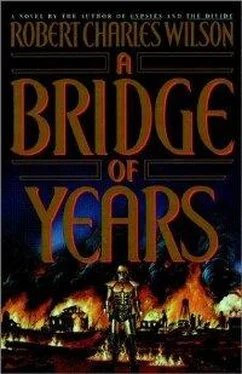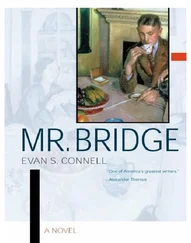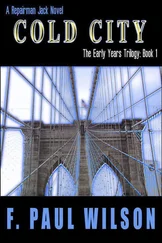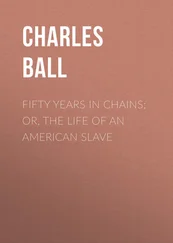But there was no way to explain any of this. No way to explain his nagging suspicion that she was, after all, right; no way to explain the fundamental upwelling of love he still felt, even after their battles, when she was kneeling in the garden or brushing her hair before bed. He loved her with a loyalty that was animal in its mute persistence. He loved her even when he opened his mouth and called her frigid.
He blinked against the fierce blue sky, the curve of the distant bay.
He said, “I loved my wife a lot. I hated it when she left.”
“So why’d she leave?” Archer added, “You’re allowed to tell me to fuck off at this point.”
“It was a political disagreement. I was doing engineering for a little R and D company out of Seattle. Barbara was into the peace movement, among other things. She came home one day and told me the company was about to be handed a big federal grant for weapons research, something connected with SDI. I told her there was no truth to the rumor. The people I worked for were scrupulous, small-scale, community-minded—I knew these guys. I checked out the possibility, asked a few questions, came up totally blank. Stood my ground. Really, it was just one more argument. There’d been more than a few. But it turned out this was the last one. She couldn’t bear the idea of being married to a war-economy engineer. As far as Barbara was concerned it was dirty money.”
“That’s what broke you up?”
“That and the fact that she was seeing somebody else.”
“Somebody in the movement,” Archer guessed. “Somebody who was feeding her a line about government grants.” Tom nodded.
“Pretty fucking raw deal. So you started drinking—that’s how you lost your job?”
“I started drinking later. I lost my job because the rumor turned out to be true. The company had been asked to bid on a satellite contract—a little bit of congressional pork for the Pacific Northwest. There was a lot of secrecy, a lot of paranoia about corporate espionage. It was all those questions I asked when I wanted to reassure Barbara. They figured I was a security risk.”
Tom stood up and brushed the dirt off his jeans.
“Offhand,” Archer said, “I would guess you’re as sane as the next guy. A little bit bruised, maybe. Aside from what we’ve talked about, you hear voices?”
“Nope.”
“Are you suicidal?”
“Three a.m. on a bad night—maybe. Otherwise no.”
“Well, I’m no shrink. But it sounds like you’re a long way ‹ from crazy. I think we ought to check out what’s been happening in that house you bought.”
“Good,” Tom said.
He shook hands with Archer and smiled at him, but a new and unwelcome thought had formed at the back of his mind: If I’m not insane, then maybe I ought to be scared.
The next morning, Sunday morning, Tom recalled that he hadn’t told Archer about the holes in the foundation of the house.
Maybe it was a mistake to withhold this, the only physical evidence that what he’d experienced wasn’t an illusion.
But he had held back on purpose, salvaging some fragment of the experience as his own. It was an odd idea: that he should feel possessive about a haunting (or whatever was happening here). But hadn’t Archer been possessive, in his own way? All that talk about magic, as if this were his own personal miracle.
But it wasn’t Archer who had been called by name in a dream. It wasn’t Archer who had stood at the window and watched the shadows of the pines and heard a voice among their sighing voices. Tom Winter, the voice had said; and it seemed to him now, after a sounder sleep, that there had been another message, less obvious then but clarified somehow by memory:
Help us, the voices had said.
Help us, Tom Winter. Please help us.
Archer arrived that afternoon with a VCR, a Sony video camera, and a tripod packed into the trunk of his car.
Tom helped him unload and erect all this paraphernalia in the living room, where it loomed like a selection of props from a science fiction movie. He said so to Archer, who shrugged. “That’s what we’re playing at, isn’t it?”
“I don’t think of this as playing. I live here.”
“You live here. I’m playing.”
“This is not a Huck Finn adventure, Doug. In case you haven’t noticed, I’m not enjoying it.”
“Something happen during the night, or are you just in a bad mood?”
“No, nothing happened.” The question made him uncomfortable. “What’s all this for?”
“Surveillance. The unsleeping eye. Take a look.”
Tom peered into the eyepiece of the video camera. It was aimed into the kitchen and captured a fairly wide angle of the room, including the stainless steel sink and the tile counter-top. A digital clock in the corner of the display read out the date, the hour, the minute, and the second.
Archer said, “The camera’s hooked into the VCR and I just set the timer for midnight. At the slowest speed, we’ve got approximately eight hours of tape. You leave everything alone, you sleep soundly, and in the morning you see what we’ve got.”
Tom shook his head. “They won’t stand for this.” Archer regarded him curiously.
Tom pulled back from the eyepiece. “So what do we do in the meantime?”
“I think the logical thing would be to mess up the kitchen.”
Archer had brought more than electronics. From the back seat of his car he produced two six-packs of beer, a bag of potato chips and a quart of sour cream and avocado dip his girlfriend had made.
“You eat like an undergraduate,” Tom said.
“Is there any other way?” Archer opened the six-pack and popped the tab on a can. “We can order a pizza for dinner.” He handed a can to Tom, then looked suddenly dubious. “Oh, hey, are you AA or anything like that? I don’t want to make life difficult.”
“I was a hobby drinker,” Tom said, “not a professional.” But he left the beer alone.
The afternoon droned on. It was a sunny, warm day and Tom opened the front and back doors to let a breeze sweep through the house. The air smelled of hot, tarry pine.
Archer kicked back and put his Reeboks on the kitchen table. “You went to Sea View Elementary. Then the high school over on Jackson, I guess, just like everybody else. Shit-awful schools, both of them,” and then they were off on a round of skewed nostalgia—what Barbara had once called “the hideous past, relived at leisure.” It turned out that the trouble Archer had gotten into in high school had been more serious and more personal than preadolescent rock throwing. He had waged a war of attrition against his high school principal and his father—two staunch disciplinarians who happened to be poker buddies. Archer had spent plenty of nights listening to them vent their hatred of children over pretzels and a well-shuffled pack of Bicycle playing cards. His father was an appliance repairman who hated kids, Archer explained, out of some fundamental quirk of personality; the principal, Mr. Mayhew, had professional reasons and was deemed to be an expert on the matter. Jackson Archer, belt-whipping his only son, liked to explain that Mr. Mayhew did this for a living and could probably do a better job of it. In fact Mr. Mayhew confined himself to the use of a ruler on the back of the hand, which was painful without incurring the kind of visible injuries that brought mothers howling down to the school—maybe this was what made him an expert. Archer had a theory that they took out their poker losses on him; he learned to avoid whoever had lost money on Sunday night.
“Didn’t stop you from getting in trouble,” Tom observed.
“Didn’t stop me from drinking, smoking, and riding in fast cars. Nope. But I never figured they really wanted to stop me. They were having too much fun.”
Читать дальше












